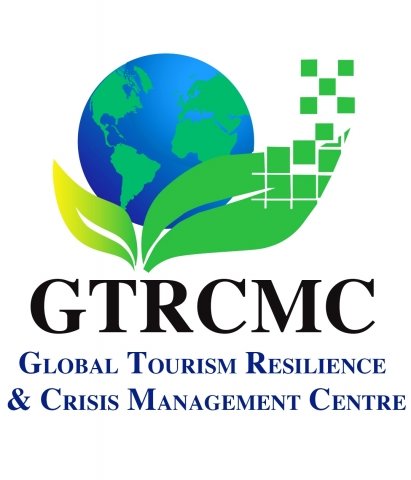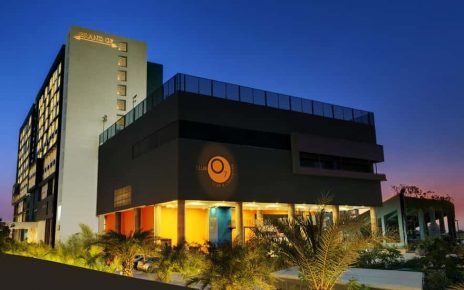Organization in charge of global tourism like UNWTO had been criticized to act helpless in addressing the global COVID-19 crisis
the Global Tourism Resilience and Crisis Management Centre takes the challenge.
When hurricanes devastated Caribbean nations in 2017 this tourism minister got busy minimizing the damage. When hurricanes hit again in the same minister asked the tourism world to step up and face any type of challenge together.
The Montego Bay Declaration signed at a UNWTO conference in 2018 called for the establishment of an entity to address tourism disruptions.
With the help of engaged students and faculties in University of the West Indies in Jamaica, the Hon. Tourism of Jamaica, Edmund Bartlett announced the creation of the first Global Tourism Resilience and Crisis Management Centre. Years later centers were established in Malta, Kenya, Nepal, Japan and other countries around the world.
Little did the world know about Coronavirus at that time, but this minister had already brought the world together and his small government had paid for it.
The outbreak of Coronavirus in 2020 was a big setback for Jamaica. Instead of giving in, this minister reached out to the best in tourism safety and security. Not only did he help the image of his country , but he managed to keep tourism running in most impossible times.
Mr. Bartlett was awarded the Tourism Hero title by the World Tourism Network for his contribution to his country and the world.
Jamaica like any other island republic relies heavily on income generated by the travel and tourism industry. With his strong believe local issues are best resolved within a global approach, Jamaicas Tourism Minister Edmund Bartlett is seen everywhere as a global leader and the person behind tourism resilience.
Working tirelessly to minimize the suffering of the travel and tourism world due to COVID-19, Minister Bartlett has always been looking for out of the box opportunities. Not only did he manage to establish new markets by establishing flights from Jamaica to Nigeria, but his hope for tourism is in the development of the vaccine. The only downfall is slow distribution
Today the Hon. Minister Bartlett will speak about vaccine politics, global priorities and destination realities on behalf of the center. A discussion with international experts is moderated by Professor Lloyd Waller, Chair of the Global Tourism and Resilience Management, based in Jamaica.
Here is Minister Bartlett’s take:
- As the world economy continues to reel from the devastating impact of the novel coronavirus pandemic, the focus in 2021 has largely shifted to ensuring the rapid global deployment of vaccination to the world’s worst affected regions, which is seen as absolutely critical to winning the global fight against COVID-19 as well as to restore the global economy to some measure of normalcy in the shortest time possible.
- To this end, it is a sign of great optimism that approximately 206 million doses of vaccines have already been administered across 92 countries globally, translating to roughly 6.53 million doses daily.
- As more vaccine trials and testing are conducted daily, especially in the more advanced economies, more vaccines have been greenlighted by the World Health Organization for widespread use and deployment after having demonstrated high efficiency during trials in achieving inoculation against COVID-19, usually after two or more doses.
- The Pfizer-BioNTech vaccine has now been cleared for use across North America, Europe and the Middle East, and vaccination campaigns have begun in at least 92 countries. The manufacturers of Covishield, the India-produced version of the AstraZeneca vaccine, have already distributed hundreds of thousands of vials to countries in the Caribbean and Latin America, including Dominica, Barbados, The Dominican Republic, Trinidad & Tobago, Argentina and Ecuador.
- The Serum Institute of India, one of the world’s largest vaccine makers, has promised to produce 1.1 billion doses of the AstraZeneca vaccine. The WHO recently confirmed that 36 countries in Latin America and the Caribbean will receive 35.3 million in the first stage of shipments. China and Russia are also selling and distributing their COVID-19 vaccines in Latin America.
- While I welcome this strong global interest and enthusiasm around COVID-19 vaccination efforts, there are several concerns. One, at the current rate of daily global vaccination, approximately 6.53 million doses, it will take roughly 5 years to cover 75% of the population with a two-dose vaccine according to Bloomberg research. This current lethargic pace has to dramatically hasten as global economic recovery efforts cannot wait five years, especially among the worst affected economies.
- Secondly, there is great disparity in the global distribution of vaccines. The picture that is emerging is that advanced countries appear to be largely rejecting a united approach in favour of reinforcing inequalities on the basis of national citizenship. The WHO has consequently warned that the world is on the brink of a “catastrophic moral failure” as poor countries risk falling behind on account of the fact that vaccine rollouts in advanced economies are largely outpacing those in emerging and developing economies — even in countries with similar death rates.
- Indeed, while the US and mostly other wealthy nations have begun to intensely vaccinate their citizens against COVID-19, developing countries, home to billions of people, have yet to even receive vaccine supplies. In fact, nearly 130 countries had not yet delivered a single dose of vaccine to their combined population of 2.5 billion people, as of last week. The current inequitable distribution of vaccines also means a greater risk of mutations that defy existing vaccines.
- What are the implications of these developments for tourism-dependent economies one might ask? Well, the implications are very clear. With more than 45 million confirmed cases and more than 1 million deaths, countries and territories throughout the Americas, particularly the poorest among them, are experiencing an unprecedented health, economic and social crisis.
- Tourism-dependent economies have lost 12 % of their GDP compared to global economic contraction of 4.4 %. Tourism export revenues are down globally between US$ 910 billion to US$ 1.2 trillion in 2020. Between 100-120 million jobs in travel and tourism were sacrificed in 2020.
- Hotel occupancy across Caribbean destinations averaged between 10 to 30 % in 2020. Tourist arrivals were down 40 to 60 % in 2020. Many hotels and tourist attractions are at risk of falling into insolvency and receivership.
- Tourism is the engine of growth in the Caribbean and its prolonged disruption spells catastrophe. Our economies are badly bleeding and need to be thrown a lifeline. The current situation facing these economies, as well as others across the world’s developing regions, can only be described as a humanitarian crisis.
- The solution is clear: access to vaccination among these countries needs to be improved rapidly. We cannot afford to politicize responses to the crisis at hand. I am thus using this opportunity to prioritize tourism-dependent economies for vaccination.
- It is imperative that the sector survives during and beyond the current crisis so that it can continue to fulfil its vital role as a significant catalyst of global economic recovery and growth.
- Undoubtedly, the prolonged downturn and lethargic recovery of the sector will signal extreme economic hardship and likely destitution for billions of people globally.




